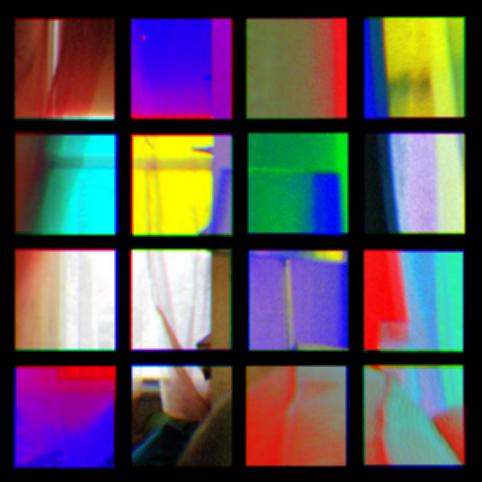
|
Wise King Taken by the Foolish One
essay no. 11
On William Byrd and... Oops! Interrupted by a crying child, just
as the moment of revelation arrived!
Dan Plonsey
October, 2001
Keywords: William Byrd, meaningless tonality, proto-fugue, beautifully multifaceted elegance
Go to:
Wise King essays, home page,
or one of the Wise King essays: 1,
2,
3,
4,
5,
6,
7,
8,
9,
10,
11,
12,
13,
14,
15,
16,
17,
18,
19,
20,
21,
22,
23,
24,
25,
26,
or
Plonsey's "Kingdoms Diptych" home page, or
Dan Plonsey home page.
|
On William Byrd and... Oops! Interrupted by a crying child, just
as the moment of revelation arrived!
The enthusiastic response to my
earlier writings
is most gratifying. The aesthetics of perfection were hardly ones that I had expected to ever
find myself embracing, let alone achieving (through the deployment thereof)
an unprecedented success - an enormous success - for a work which, from the point of view of "not
there yet" exhibits an overly polished conception of tonality of absolutely no meaning,
the chords are used merely to mark the particular rhythm of passing time, but they could
have been any chords at all, governing, or shepherding, or imposing order upon, a
series of four
voice canons or proto-fugues.
I ask you: what is the significance of the chosen moments of entrance of the canon? Simply this:
they prepare the path which the concluding cadence is to interrupt: one of the voices must depart
from the pattern for the final chord which, heretofore minor, is at last major. Which means that
somebody's gotta break the rules to go up that half step, thereby admitting a melodic tritone
into the mix: the devil sneaks in at the very last possible moment: he's a part of all
conclusions.
Anyway, writing as a matter of course - as always,
my cynical, pre-enlightenment, pre-tolerant current
stance cannot be denied - though, I suppose, to effect the transformation of you
as I would like - I must utilize the literary equivalent of the tritone in order to direct you
to any conclusion. It has to be, like it or not, here in my writing - and its occurrence ushers
in - or marks the beginning of - a period of unanticipatedly profitable and beautifully
multifaceted elegance, of a sort which was inevitably, yet also sadly, inaccessible to me
due to my anti-perfection stance. So here I strain against the leash, and also against the change
of direction of winds. Am I really to embrace the perfection-notion? Don't tell me that we're
anticipating one of the most wonderfully genuine periods of personal experience - that being
being in the body - leading to an insight so clear and so unanticipated that I will
certainly be swept along with no further impetus necessary ever again - after this one
impulse! From whence shall it come? What corner? From whom? For yes, though I'm talking about
the occurance of a sort of
religious conversion, a sort of Deus Ex Machina with or without the machina,
being at least some sort of theophany or
theosophical insight,
the actual event depends upon a particular meeting, a particular person, a new person or a
new relationship, a catalyst,
a kindling of some sort of new flame in material thought to be
un-inflammable, one which has never before been experienced or acknowledged. Also
maintaining unique
spectral characteristics, and thus, admitting to the possibility of a previously unseen color...
If a person
were to discover a means of seeing new colors, one after the next, would it ever become tiring to
see yet another new color? Are we not in fact always engaged in the sub-division of the visible
light spectrum into gazillions of distinct, discrete, colors - and thus, there being effectively
infinite numbers of hues, isn't it true that we are constantly recognizing colors we've never
before seen? Shouldn't we be more excited by that? Isn't it possible that one day we will see a
certain special color with special evocative properties absolutely unlike those colors closest
on either
side?
Or am I entirely mistaken about the experience of color? Might not the millions and billions of
colors be getting mapped into perhaps three shades of each of the seven primary colors, so that
the total number of color-experiences maybe no more than 15-20? (After all, according to some,
there are only 9 or 16 types of people - which I at least would expect to be more varied
than colors!) But still, even if we grant the possibility of this worst-case scenario, I'd rather
equate the experience of color with that of pitch: and just think about what it does to you to
hear Ornette Coleman leap up to one of those beyond-pitch-class-category high notes!
Those things leap right out of the spectrum! Don't talk to me about continuity!
So, okay, let's please believe that there is the real chance of hitting - on rare
occasions - an experiential anomaly which cannot be mentally adjusted to be in tune with any of
the known categories. Good thing there's such a thing as filial loyalty and even....
Oops, interrupted by a crying child, just as the final revelation/conclusion was on the
door mat...
-- Dan Plonsey, October 2001,
El Cerrito, California
Go to:
Wise King essays: 1,
2,
3,
4,
5,
6,
7,
8,
9,
10,
11,
12,
13,
14,
15,
16,
17,
18,
19,
20,
21,
22,
23,
24,
25,
26,
or
Plonsey's "Kingdoms Diptych" home page, or
Dan Plonsey home page.
|

|

